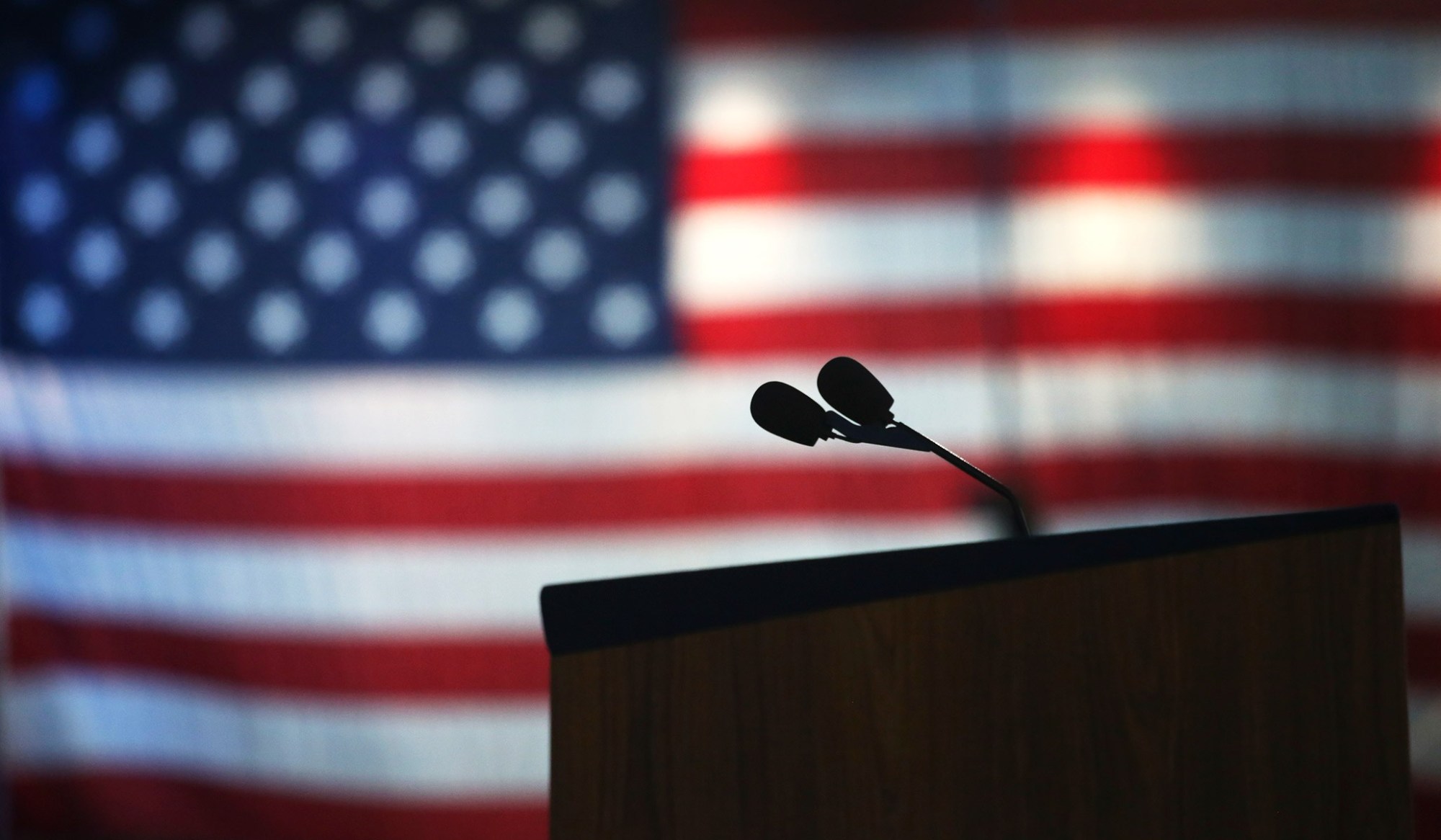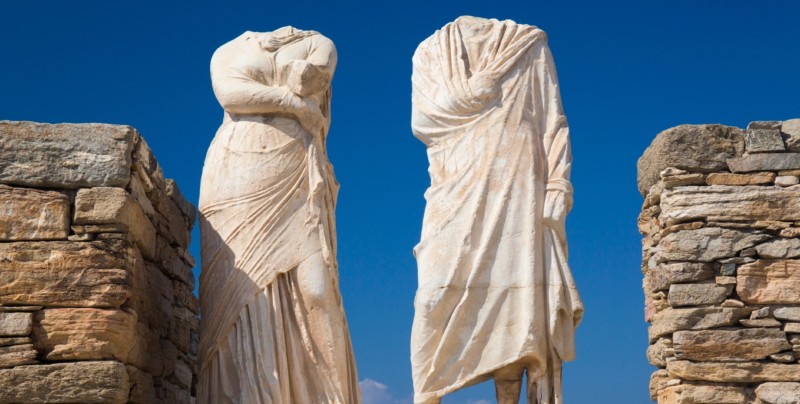
View original article on National Review.
No matter who holds power, individuals and groups have the right to spend money to communicate their ideas.
Since the landmark political-speech case Citizens United v. FEC (2010), there has been broad public support for campaign-finance reform, fueled by a deep suspicion of both politicians and moneyed interests. According to a Gallup poll before the 2018 midterm election, more than half of Americans view members of Congress as corrupt and beholden to special interests rather than to their constituents. Nothing has exacerbated those concerns so much as the decision in Citizens United, which empowers corporations and unions to advocate for political candidates and positions, so long as their efforts are not coordinated with candidates.
Many Americans are legitimately worried about special interests and corporations using campaign spending as a quid pro quo to gain political access and influence. Elections do need appropriate oversight. But we must be careful that oversight does not come at the cost of our constitutional right to speak, or — what is a necessary corollary of that right — our ability to spend money to use or build media platforms that communicate our ideas.
The first oral arguments of Citizens United demonstrate the unanticipated perils of campaign-finance regulations for speech. In that case, Chief Justice Roberts asked the federal government’s solicitor general whether some books could be banned under the current law: “It’s a 500-page book, and at the end it says, and so vote for X! The government could ban that?” The solicitor general, to the shock of the Court, affirmed that, under the current law, such a book could be banned and the author imprisoned. This exchange explains why the unconstitutional restrictions on political speech were overturned.
Our Founders understood that free speech helps protect Americans no matter who holds power. The Citizens United decision is a natural extension of the rights of individuals to speak freely; anything less would have betrayed the very concept of the First Amendment. As law professor John McGinnis wrote in the Los Angeles Times in 2016: “If the 1st Amendment protects an individual’s right to speak, then why . . . shouldn’t a group of individuals, banded together in a partnership or other association, also enjoy that right? And if an association has that right, why would it lose it when it takes corporate form?” Lest we forget: In 1964 it was a corporation, the New York Times, that fought for its constitutional right to publicly criticize racist government officials with impunity, and it won that right in the famous Supreme Court case of New York Times Company v. Sullivan.
The freedoms afforded to the press and to corporations are intimately tied to the freedoms of citizens to speak without restriction. If money cannot be used to make political statements, then the government can regulate who can buy or start media companies, and it can censor what kinds of statements and endorsements media companies and their investors can make and when. This means that independent journalism requires the liberty to spend money freely. One need only look to our own history to understand that governments cannot be trusted to impartially regulate the press. After passage of the Alien and Sedition Acts of 1798, Federalist-party officials prosecuted Democratic-party journalists who opposed them. Imagine that your political adversary is in charge of the government agency regulating the media’s political activities. Do you trust the government to make decisions about which news is fit to print?
It can be tempting to restrict political spending in order to make American politics “more fair.” But the dangers of arbitrarily silencing people with political-speech laws are far greater than the risks associated with disproportionate influence. Giving everyone an “equal voice” without violating everyone’s fundamental rights is an impossible chimera. Wealthy people can afford to advertise their views, but they are not the only ones with outsized influence — others are able to shape perception through media or academic channels or to attract attention through their celebrity. The only way to equalize all speech would be to forbid all of it.
Contrary to the rhetoric of reformers, campaign-finance reforms often benefit the already powerful and well-connected elite. Special interests that have longstanding relationships wield a far more extensive arsenal of influence — political networking, nepotism, the revolving door, etc. — than simple campaign donations. In many cases, money is one of the few tools that grassroots advocacy groups and candidates have to employ in politics. The campaigns of independent and third-party candidates such as Ross Perot and Theodore Roosevelt (in 1912), who appealed to and performed strongly among voters from across the political spectrum, were possible only through substantial initial funding by private donors. If citizens were not permitted to use money to amplify their speech to take on the politically entrenched, the result would be disastrous for the American experiment in democracy: an ossified ruling class.
It is important to remember that ideas, not money, are the most powerful form of influence — and it shows in political-spending numbers. It might be surprising that heated elections such as those in 2016 elicited only about $6.5 billion in total campaign expenditures, which included spending by presidential candidates, Senate and House candidates, political parties, and independent interest groups. That is less than 0.2 percent of the federal government’s spending in just a single year. Given the stakes of control over the federal government, it is almost alarming that, as George Will has pointed out, U.S. presidential contests cost only about as much as Americans spend annually on Easter candy.
The reason there is so little money in politics is that in most races, cash is irrelevant to electoral results. As many as 80 to 90 percent of congressional races are “effectively predetermined” by factors such as the district’s partisan makeup and incumbency advantage — symptoms of gerrymandering, unlimited tenure, and other important, tangential issues. While advertising can help achieve basic name recognition early in campaigns, returns diminish quickly thereafter and rarely shift votes. In 1994, Stephen Levitt, the co-author of Freakonomics, did a famous study of congressional elections in which the same two candidates had faced each other more than once but who spent different amounts of money each time; Levitt found that a 50 percent increase in spending by one candidate caused only a 0.33 percent change in the vote. Moreover, political donations do not seem to sway legislators in favor of special interests. In a recent study, John Matsusaka of the University of Southern California found that at least 65 percent of the time, a legislator’s voting aligns with the wishes of the majority of constituents and that, in the remaining 35 percent of the time, voting most often aligns with the individual ideology of the politician rather than with the interests of their largest donors alone.
Rather than succumb to popular hysteria about money in politics, we ought to take a more philosophically rigorous view of the issue. Our Founding Fathers, while noting the potential danger of special interests, still believed that “factions” must play a role in democratic debate. James Madison and others understood that any attempt to abolish factionalism would limit freedom. In Federalist No. 10, Madison wrote that “liberty is to faction what air is to fire, an aliment without which it instantly expires. But it could not be less folly to abolish liberty, which is essential to political life, because it nourishes faction, than it would be to wish the annihilation of air . . . because it imparts to fire its destructive agency.”
The same must be said of speech.
Instead of eliminating the influences of special interests by restricting the liberties afforded to all citizens, in a large and diverse republic, Madison suggested, factions of citizens would compete to advance their ideological agendas. Adversaries such as the National Rifle Association and the Brady Center seek to organize like-minded citizens and rally political support through policy research, fundraising, advertising, and other means. Corporations and industry trade groups offer policy prescriptions that are then contested by non-governmental organizations and academics who rigorously analyze the policy prescriptions offered by those corporations.
Most political expenditures by interest groups aim to inform and excite the American public through legitimate avenues. Citizens who may oppose a competing interest should not silence that interest through legal restriction but rather signal their commitments by volunteering, contributing, and voting for their preferences. The importance of this approach is emphasized by the fact that some of the most effective special interests, such as the American Hospital Association, influence politicians primarily through slanted research, not financial contributions. Only about 2 percent of the AHA’s budget is spent on campaign contributions, but this understates its electoral activities, since AHA can mobilize hundreds of doctors for political efforts in a given congressional district without spending any money at all.
Even so, citizens should be vigilant and pay attention to the way that politicians interact with money, but the best way to moderate those interactions is to make them transparent. An example of this kind of reform is the un-adopted amendment that Representative Rodney Davis (R., Ill.) attached to to H.R.1 — the For the People Act of 2019, a campaign-finance-reform bill that the House passed this spring and that is unlikely to pass the Senate. Davis’s amendment would help voters know if their representatives’ campaigns are being financed largely by groups outside their district. Given access to information about campaign-finance expenditures, voters would be empowered to discern what constitutes unsavory politics and what does not. Imagine if all members of Congress wore NASCAR suits that labeled all of the major special interests that supported them — don’t you think lawmakers would start acting differently? As law professor Bradley Smith pointed out in 2010 in an essay in National Affairs, politicians are not obstinate: “Votes — not dollars — are what ultimately get put into ballot boxes. And it would make little sense to anger one’s constituents for a contribution that can only be used to try to win those constituents back.”
Madison believed that we should trust the ability of citizens to make political decisions to elect “fit characters” or to vote out unfit representatives. No amount of money can overcome the voter’s ultimate power. Fortunately, the Supreme Court in Citizens United maintained faith in the American citizen, declaring that “the right of citizens to inquire, to hear, to speak, and to use information to reach consensus is a precondition to enlightened self-government and a necessary means to protect it.”
Our citizens today are enfranchised irrespective of race, sex, and creed. We are, in this respect, more fit to make political decisions than any those in any previous political epoch. American citizens are afforded liberties by our forefathers, because the founders of our nation had confidence in their posterity to use and protect them wisely. The Founding Fathers did see the potential problems that liberties — those of citizens and of factions of citizens — could present a republic. Yet they knew that the freedom to speak was the foundation of any successful republic, and that any cure for the so-called problems of speech — as with other forms of liberty — would be worse than any of its associated illnesses.

